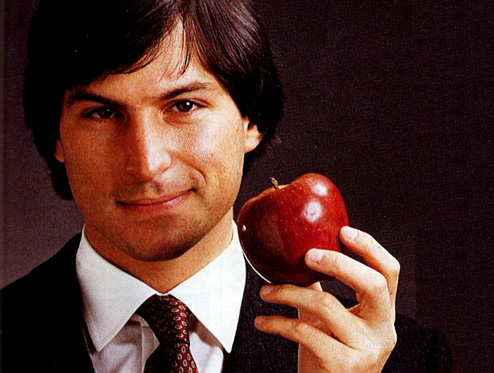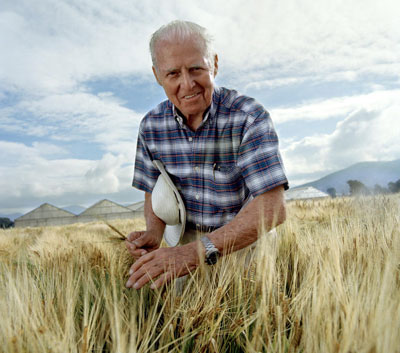
When Steve Jobs returned to Apple after a 12-year absence, the company was facing a crisis. Quickly running out of cash and close to bankruptcy, Jobs explained his plan to get the company going again.
“Apple is not about making boxes for people to get their jobs done, although we do that well. Apple is about something more. Its core value is that we believe that people with passion can change the world for the better.”
When Jobs said people with passion can change the world, he meant it; it’s a philosophy he lived by and helped shape some of his biggest accomplishments. Looking closely at how he incorporated this philosophy into his life, we can learn a lot of important lessons.
It starts at Reed College where Jobs went to school. He soon discovered that he disliked most of the required courses; so rather than take classes he wasn’t interested in, he dropped out.
But he didn’t stop studying. He arranged with the dean to attend the classes he wanted, just without college credit. This allowed him to continue working on the subjects he was most passionate about.
This reveals the first major point about passion.
#1 – Passion is work that you enjoy
“The only way to do great work is to love what you do.” – Steve Jobs
Most people think of school as work, which it is. But people like Steve Jobs find work enjoyable.
If you don’t enjoy what you’re doing, you’re more likely to quit. It’s hard to keep working on something you don’t like.
The flipside is important too. If you’re not willing to put in the work, no amount of love will get you anywhere.
Both work and enjoyment are essential.
“If you don’t love it, if you’re not having fun doing it…you’re going to give up. And that’s what happens to most people, actually.”
In college, Steve Jobs was still figuring himself out. It wasn’t necessary to be focusing on something important; what mattered more was that he found the love for work.
This is important because once you learn that work can be fun, you can take this mindset with you to other areas of your life, especially once you spot an opportunity.
For Steve Jobs, that opportunity was computers.
And this leads into the next major point.
#2 – Follow your passions that solve problems
“Basically Steve Wozniak and I invented the Apple because…[we] couldn’t afford the computers that were on the market, those computers were impractical for us to use. We needed a Volkwswagen. The Volkswagen isn’t as fast or comfortable as other ways of traveling, but the VW owners can go where they want when they want and with whom they want.”
Steve Jobs was passionate about computers, but he noticed how impractical and poorly designed they were. So he decided to focus this passion into building something much better than anything else on the commercial market.
By focusing his passion on solving a problem, he eventually upended an entire industry and changed the way the world looked at computing.
Following your passion is good, but following your passion to solve a problem is even better.
Steve Jobs worked on this problem mostly by himself out of his parents’ garage, building computer parts and overcoming design problems to build something people wanted to buy.
People were skeptical. Neighbors thought he was odd and dismissed his ideas as a joke. They would never have imagined his future success.
This leads to the next point.
#3 – To be passionate, you need faith in your abilities
“You can’t connect the dots looking forward; you can only connect them looking backward. So you have to trust that the dots will somehow connect in your future. You have to trust in something – your gut, destiny, life, karma, whatever. This approach has never let me down, and it has made all the difference in my life.” – Steve Jobs
When you’re working on something big like starting a business or writing a novel, you need dedication to see it to the end. The future is unknown so when you’re working on problems it’s important to have faith that somehow you’ll find solutions.
For a long time, Steve Jobs was the only one who believed in himself. Even his friend Steve Wozniak only helped out here and there until the business started really growing.
Eventually his design ideas started to come together and they released their first model: the Apple I. From there, his company grew and grew until it became the titan of the electronics world that it is today.
But the lesson remains true: passionate people put faith in themselves. The dots never connect looking forward, only backward.
After many years of success, Apple became a huge company employing a lot of people. But after a few inside squabbles, Jobs suddenly left after a dispute with the board of directors.
Distraught and disappointed, he initially struggled with the idea of what to do next. He flirted with the idea of becoming an astronaut or getting into politics. But he decided to stick with what he loved to do, only this time he’d have to start from the beginning.
This proved to be a major turning point in his life and leads to the next big lesson.
#4 – Look for ways to reinvent yourself and start over
“I didn’t see it then, but it turned out that getting fired from Apple was the best thing that could have ever happened to me. The heaviness of being successful was replaced by the lightness of being a beginner again, less sure about everything. It freed me to enter one of the most creative periods of my life.”
After he left Apple, Jobs started a new computer company called NeXT and financed a new film company called Pixar which would go on to reshape animated films for decades (and made one of my favorite films of recent years Inside Out).
When Apple bought NeXT in 1997, Jobs returned to the company he created. This is when he unleashed some of his most important devices: the iPhone, iPad, iPod, Apps, the iTunes store.
And he credits this creative boom to starting over again as a beginner.
Starting over as a beginner was good because it got rid of entrenched thinking.
Being successful and knowledgeable can sometimes be a little bit of a curse. The minute you think you have something all figured out, you stop looking for new possibilities. You’re less open to new paths.
By starting over again, Jobs got back that beginner’s mindset. He was unsure of how to proceed and had to relearn everything all over again. Rather than be held back with preconceptions, limitations or faulty assumptions, he was open to anything.
It was this “beginner’s mindset” that helped him get rid of limited thinking and opened his mind to new possibilities.
One More Thing…
When Steve Jobs gave speeches, he would famously add extra information at the end by saying the phrase “one more thing…” Well, here’s one more thing.
“You’ve got to put something back into the flow of history that’s going to help your community, help other people…so that 20, 30, 40 years from now…people will say, this person didn’t just have a passion, he cared about making something that other people could benefit from.”
This, I think, is the ultimate lesson. When people look for something to be passionate about, they often look for what the world can offer them. Instead, we should be looking for what we can offer the world. Find a way to be passionate that helps and benefits others – that’s how passionate people change the world.






